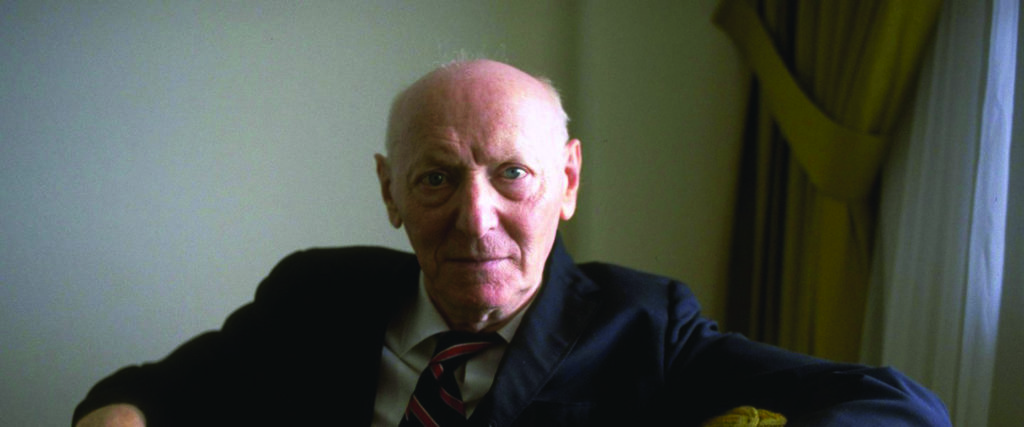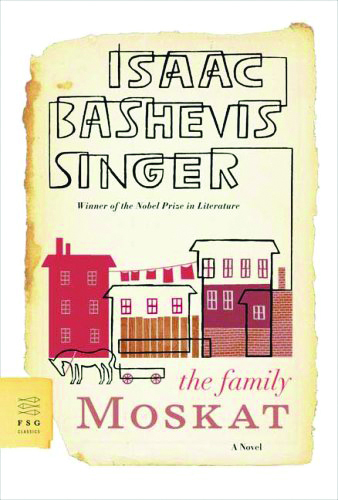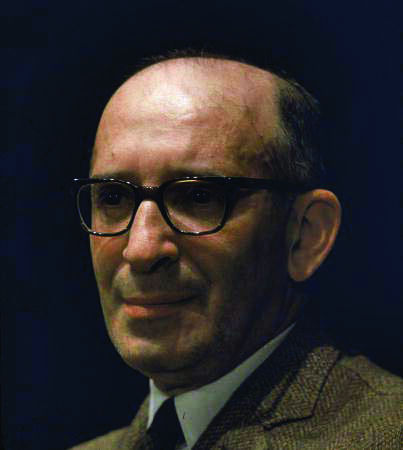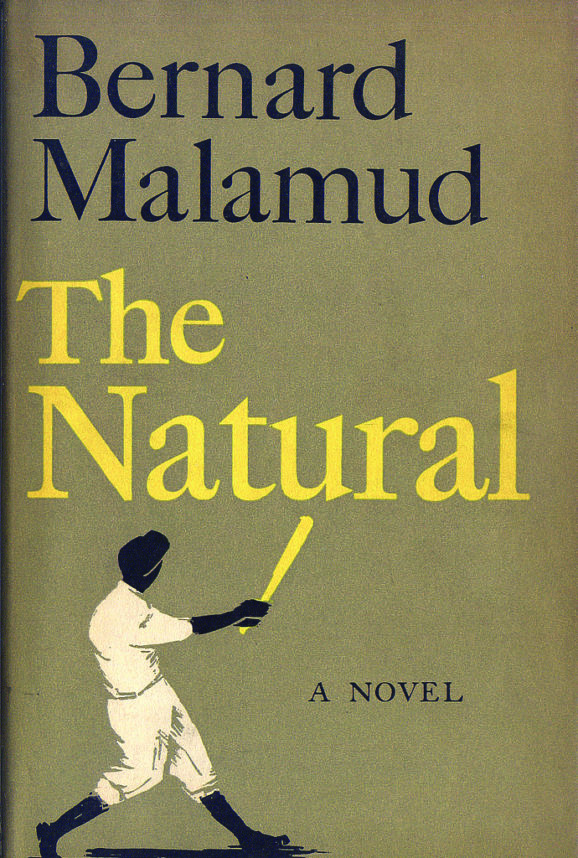
Jewish Contributions to Humanity #9:
Original research by Walter L. Field.
Sponsored by Irwin S. Field.
Isaac Bashevis Singer (1902-1991). b. Leoncin, Poland. 1978 Nobel Prize in Literature. The Yiddish storyteller.
 He is accepted as one of the greatest contemporary Yiddish short story writers and novelists, whose tales wove fantasy, mysticism and eroticism into much of his fiction. Born to a family of Chassidic rabbis, Singer attended a rabbinical seminary, but instead chose the path of the writer. He began his career as a journalist in Warsaw, publishing his first novel, “Satan in Goray,” in 1935, the same year he emigrated to America. In the United States, he continued working as a journalist for The Jewish Daily Forward and he published his first major novel, “The Family Moskat,” in 1950, which was almost shut down by his boss because of its controversial themes (including adultery on Yom Kippur). Several stories of his were adapted into film, including “Yentl” and “Enemies, a Love Story.” In all, Singer published at least 18 novels, 14 children’s books, and many more articles, essays, and memoirs. He wrote everything in Yiddish and his works were later translated into English and other languages. His work gave millions of people insight into the richness of Yiddish language and culture and into the world of East European Jewry—both the shtetl world and the urban world. His writing was very much a product of the environment of his Polish upbringing. If history books will give the world a window into the macro history of Polish and Yiddish Jewry, Singer has given us a window into the Yiddish soul.
He is accepted as one of the greatest contemporary Yiddish short story writers and novelists, whose tales wove fantasy, mysticism and eroticism into much of his fiction. Born to a family of Chassidic rabbis, Singer attended a rabbinical seminary, but instead chose the path of the writer. He began his career as a journalist in Warsaw, publishing his first novel, “Satan in Goray,” in 1935, the same year he emigrated to America. In the United States, he continued working as a journalist for The Jewish Daily Forward and he published his first major novel, “The Family Moskat,” in 1950, which was almost shut down by his boss because of its controversial themes (including adultery on Yom Kippur). Several stories of his were adapted into film, including “Yentl” and “Enemies, a Love Story.” In all, Singer published at least 18 novels, 14 children’s books, and many more articles, essays, and memoirs. He wrote everything in Yiddish and his works were later translated into English and other languages. His work gave millions of people insight into the richness of Yiddish language and culture and into the world of East European Jewry—both the shtetl world and the urban world. His writing was very much a product of the environment of his Polish upbringing. If history books will give the world a window into the macro history of Polish and Yiddish Jewry, Singer has given us a window into the Yiddish soul.
Bernard Malamud (1914-1986). b. Brooklyn, NY. 1967 Pulitzer Prize for Fiction. The late-blooming novelist.

For someone who burned the manuscript of his first novel, “The Light Sleeper,” at the age of 34, Bernard Malamud certainly produced a writing career that, if not prolific in terms of how much he wrote, was remarkable for what he wrote. He struck gold with his first published novel, “The Natural,” one of the greatest sports and baseball fantasies ever written, which was turned into a movie starring Robert Redford in 1984. He also wrote seven other novels, including “The Fixer,” about anti-Semitism in Czarist Russia, which won both the Pulitzer Prize for Fiction and the National Book Award for Fiction in 1967. The former urban factory worker, store clerk and high school teacher took up his pen largely in outrage against the Holocaust, and gave a modern voice to fables and parables as vehicles for moral lessons. Many of his short stories and other writings tackle issues germane to so many urban settings—class conflict, poverty and, particularly in New York, life for immigrant communities. One of the great American novelists, Mary Flannery O’Connor, said of Malamud, “I have discovered a short-story writer who is better than any of them, including myself.”























 More news and opinions than at a Shabbat dinner, right in your inbox.
More news and opinions than at a Shabbat dinner, right in your inbox.